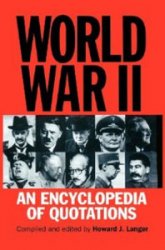It was Vladimir Lenin (V. I. Ulyanov, 1870-1924) who, in 1903, insisted on splitting the RSDLP into Bolsheviks and Mensheviks over differences in political strategy. Many social democrats in both groups opposed the breakup, but Lenin would not retreat from his decision. Such determination was characteristic—time and again, even against strong opposition within his own Bolshevik faction, he prevailed. Intelligent, well-grounded in Marxism, and keenly observant and pragmatic, this political bulldog, once he returned to Russia (April 16, 1917) from exile in Switzerland, immediately began moving the Bolsheviks toward taking political power. The success of this move, however, was not only a matter of his leadership. The Provisional Government, troubled by one crisis after another, with its ministers being changed every few weeks, could hardly build public confidence in its ability to govern. Furthermore, despite its commitment to and the urgency of creating a popular government, it delayed election of a constitutional convention until November. By election time the Bolsheviks had already taken over. For their part, many members of the Petrograd Soviet, despite or because of the Soviet's popularity, were reluctant to take over the government and assume responsibility for resolving nearly insurmountable problems.
Lenin had no such reluctance, and on November 6-7, 1917 (October 24-25, Old Style), after weeks of his urging, the Bolsheviks finally overthrew the Provisional Government, against relatively little resistance and without much bloodshed. Late on the evening of November 7, the Second All-Russian Congress of Soviets met for its opening session. Leon Trotsky (Lev Davidovich Bronstein, 1877-1940), chairman of the Petrograd Soviet, told the delegates what had just happened and, backed by a majority in the congress of Bolsheviks and some SRs, took over the convention. He ridiculed a proposal to have the Bolsheviks join with other democratic parties in forming a government. Many Menshevik and SR delegates walked out. The next day Lenin was received by the delegates with tremendous enthusiasm. He proclaimed the beginning of the construction of socialism and introduced three decrees: one to end the war, another to abolish private property, and a third to create a new government. The name of this government was Council of People's Commissars, and every commissar was to be a Bolshevik: Lenin, chairman; Trotsky, foreign affairs; Aleksei Rykov (1881-1938), internal affairs; Joseph Stalin (Iosif V. Dzhugashvili, 1879-1953), nationalities; and so on. All was done in the name of the Soviet. Thus, at the start, a transparent fiction was created that the Congress of Soviets, rather than the Bolsheviks, was the governing power. In fact, there was to be no democracy and only some temporary sharing of power with
Sympathetic SRs and Mensheviks. Election of delegates to the Constituent Assembly began in late November, three weeks after the Bolshevik victory. Despite some efforts by Lenin's Party to bend the election their way, SRs got 40 percent of the vote and 53 percent of the delegates. The Bolsheviks were a distant second with 24 percent of the vote and (with a small number of supporting Left SRs) 30 percent of the delegates. The disappointed Lenin permitted the assembly to have only one meeting, its opening session, which he attended, January 18-19,1918.
One year after the great March upheaval toppled the monarchy, the Seventh Party Congress of the RSDLP Bolsheviks (March 6-8,1918) changed its name to the Russian Communist Party (Bolshevik) and ratified the Treaty of Brest-Litovsk, ending war with Germany. A vast territory and tens of millions of persons were signed over to the Germans, who were now so close to Petrograd that the government moved itself to Moscow. To overcome strong opposition to the treaty among Communist leaders, Lenin had threatened to resign from the Party. Outside the Party, resistance to the treaty turned violent. Left SRs, having failed to persuade the Soviet government to reject the Brest Treaty, broke their political alliance with the Communists by assassinating German ambassador Mirbach (July 6,1918), hoping that action would lead to a renewal of war. On August 30, Lenin himself was shot and seriously wounded.
Peasant-oriented SRs, who had won the most democratic election in Russia's history by a wide margin, had good reason to resent the Communist Party, which denied them all but marginal political power. SR membership in Soviet Congresses and in the central executive committees of these congresses, described by Lenin himself as the supreme governing institutions, came to mean little, dominated as they were by the "workers' dictatorship," namely the Communist Party and its own executive committees. Only because the Communists faced a host of enemies in the summer of 1918 did they delay (until 1922) ridding their government of remaining Mensheviks and SRs.




 World History
World History









